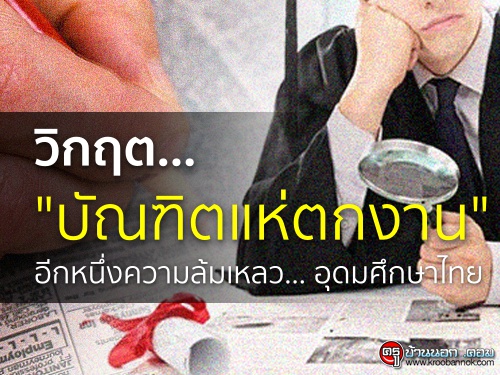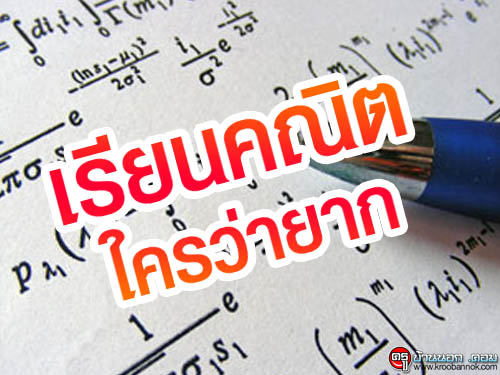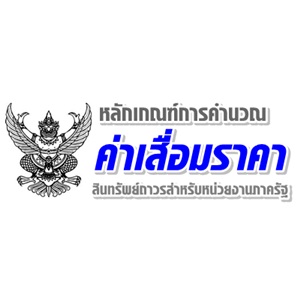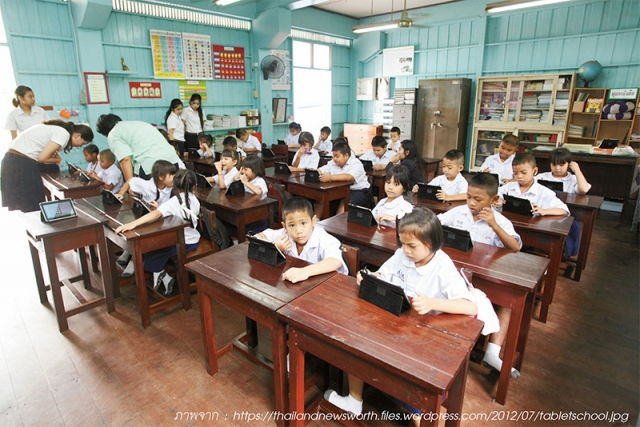ชื่อเรื่อง การพัฒนารูปแบบการเสริมสร้างคุณธรรม จริยธรรม ของนักเรียนโรงเรียนเทศบาล 2
วัดโพธิ์ โดยใช้กลยุทธ์การบริหารด้วยหลักการมีส่วนร่วม
ผู้วิจัย นางสาววนิดา ตันสุวรรณรัตน์
ปีที่พิมพ์ 2559
บทคัดย่อ
การวิจัยครั้งนี้มีความมุ่งหมายเพื่อสร้างรูปแบบการเสริมสร้างคุณธรรม จริยธรรม ของนักเรียนโรงเรียนเทศบาล 2 วัดโพธิ์โดยใช้กลยุทธ์การบริหารด้วยหลักการมีส่วนร่วม โดยใช้ระเบียบวิธีการวิจัยเชิงปฏิบัติการแบบมีส่วนร่วมและการวิจัยและพัฒนา ดำเนินการวิจัยแบ่งออกเป็น 4 ระยะ ได้แก่ ระยะที่ 1 การศึกษาทฤษฎีและแนวคิด เอกสารงานวิจัยที่เกี่ยวข้อง สำรวจสภาพปัจจุบัน สภาพที่พึงประสงค์ และความต้องการในการเสริมสร้างคุณธรรมจริยธรรมของนักเรียนในโรงเรียนสังกัดองค์กรปกครองส่วนท้องถิ่นในจังหวัดฉะเชิงเทรา จำนวน 10 โรง กลุ่มตัวอย่างได้แก่ ผู้อำนวยการสถานศึกษาและครูโรงเรียนสังกัดองค์กรปกครองส่วนท้องถิ่น จำนวน 30 คน และ กลุ่มผู้ร่วมวิจัยจำนวน 30 คน ระยะที่ 2 การสร้างรูปแบบการเสริมสร้างคุณธรรม จริยธรรมของนักเรียนในโรงเรียนเทศบาล 2 วัดโพธิ์โดยใช้กลยุทธ์การบริหารด้วยหลักการมีส่วนร่วม โดยตรวจสอบความเหมาะสมและความเป็นไปได้ของรูปแบบฯ โดยผู้ทรงคุณวุฒิ จำนวน 10 คน ด้วยเทคนิคการสนทนากลุ่ม (Focus Group Discussion) ระยะที่ 3 การทดลองใช้รูปแบบการเสริมสร้างคุณธรรม จริยธรรมของนักเรียนในโรงเรียนเทศบาล 2 วัดโพธิ์ โดยใช้กลยุทธ์การบริหารด้วยหลักการมีส่วนร่วมกับโรงเรียนเทศบาล 2 วัดโพธิ์ และ ระยะที่ 4 การประเมินรูปแบบการเสริมสร้างคุณธรรม จริยธรรมของนักเรียนในโรงเรียนเทศบาล 2 วัดโพธิ์โดยใช้กลยุทธ์การบริหารด้วยหลักการมีส่วนร่วมโดยกลุ่มผู้ใช้รูปแบบฯ จำนวน 15 คน เครื่องมือที่ใช้ในการวิจัย ได้แก่ แบบสัมภาษณ์ และแบบสอบถาม สถิติที่ใช้วิเคราะห์ข้อมูล ได้แก่ ค่าเฉลี่ย ส่วนเบี่ยงเบนมาตรฐาน และเปรียบเทียบผลการพัฒนาด้วยสถิติทดสอบที Dependent Samples t test
ผลการวิจัยปรากฏดังนี้
1. การปฏิบัติและความต้องการเกี่ยวกับการเสริมสร้างคุณธรรม จริยธรรมของนักเรียนโรงเรียนสังกัดองค์กรปกครองส่วนท้องถิ่น จังหวัดฉะเชิงเทรา ส่วนใหญ่จัดเป็นกิจกรรมพิเศษ ไม่ต่อเนื่องสม่ำเสมอ และคุณธรรม จริยธรรมที่ต้องการเสริมสร้าง คือ ความมีวินัย รับผิดชอบ และปฏิบัติตามหลักธรรมเบื้องต้นของศาสนาที่ตนนับถือ ผลการสำรวจสภาพปัจจุบันในการส่งเสริมและพัฒนาคุณธรรม จริยธรรมของนักเรียนโดยรวมมีการปฏิบัติต่อการส่งเสริมและพัฒนาคุณธรรม จริยธรรมของนักเรียนทั้ง 3 ด้าน อยู่ในระดับมาก ส่วนสภาพที่พึงประสงค์อยู่ในระดับมากที่สุด และความต้องการจำเป็นเรียงลำดับจากมากไปหาน้อย ได้แก่ 1) ด้านการจัดระบบส่งเสริมและพัฒนาคุณธรรม จริยธรรม 2) ด้านการบริหารงานการจัดกิจกรรมเสริมสร้างคุณธรรม จริยธรรม และ 3) ด้านการมีส่วนร่วมในการส่งเสริมและพัฒนาคุณธรรม จริยธรรม
2. รูปแบบการเสริมสร้างคุณธรรม จริยธรรมของนักเรียนในโรงเรียนเทศบาล 2 วัดโพธิ์โดยใช้กลยุทธ์การบริหารด้วยหลักการมีส่วนร่วม เป็นกระบวนการเชิงระบบ 3 ระยะ ประกอบด้วย ด้านปัจจัยนำเข้า ได้แก่ บริบทของสถานศึกษา การจัดการเรียนการสอนคุณธรรมจริยธรรม และผู้มีส่วนร่วมในการจัดการศึกษา ด้านกระบวนการ ได้แก่ การจัดทำแผนตามยุทธศาสตร์ในการพัฒนาคุณธรรม จริยธรรมตามยุทธศาสตร์ กำหนดผู้รับผิดชอบดำเนินการพัฒนาตามกิจกรรมและโครงการ การนิเทศติดตาม และประเมินผลกิจกรรมจากผู้มีส่วนร่วมในการจัดการศึกษา 6 ฝ่าย ด้านผลลัพธ์ ได้แก่ นักเรียนเป็นผู้มีคุณธรรม จริยธรรม ตามความต้องการของทุกฝ่ายและโรงเรียนมีรูปแบบในการพัฒนาคุณธรรม จริยธรรมของนักเรียน
3. ผลการใช้รูปแบบการเสริมสร้างคุณธรรม จริยธรรมของนักเรียนในโรงเรียนเทศบาล 2 วัดโพธิ์ โดยใช้กลยุทธ์การบริหารด้วยหลักการมีส่วนร่วม มีความตรงแบบอิงผู้ทรงคุณวุฒิและการประเมินหลังการใช้รูปแบบฯ พบว่า คุณธรรม จริยธรรม ของนักเรียนสูงกว่าก่อนการใช้รูปแบบฯ อย่างมีนัยสำคัญทางสถิติที่ระดับ .05
4. ผลการประเมินรูปแบบการเสริมสร้างคุณธรรม จริยธรรมของนักเรียนในโรงเรียนเทศบาล 2 วัดโพธิ์ โดยใช้กลยุทธ์การบริหารด้วยหลักการมีส่วนร่วม มีความเป็นประโยชน์ ความเป็นได้ ความเหมาะสมและความถูกต้องโดยรวมและรายด้านอยู่ในระดับมาก
ผู้ตอบแบบสอบถามมีความพึงพอใจต่อรูปแบบการเสริมสร้างคุณธรรม จริยธรรมของนักเรียนในโรงเรียนเทศบาล 2 วัดโพธิ์ โดยใช้กลยุทธ์การบริหารด้วยหลักการมีส่วนร่วมทั้งโดยรวมและรายด้านอยู่ในระดับมาก
คำสำคัญ รูปแบบการเสริมสร้างคุณธรรม จริยธรรม, กลยุทธ์การบริหารด้วยหลักการมีส่วนร่วม,
กระบวนการเชิงระบบ
Key Words Model of Enhancing Moral Virtues, Participatory Principles Administrative
Strategies, Systematical Process
TITLE Model Development for Enhancing Moral Virtues of Students in Watpho
District School 2 Based on the Participatory Principles Administrative
Strategies
AUTHOR Ms. Wanida Tansuwannarat
DATE 2016 A.D.
ABSTRACT
The objectives of this research were to design a model for enhancing moral virtues of students in Watpho District School 2, under the Office of Organization of Local Government (OOLG), Chachoengsao Province based on the participatory principles administrative strategies. The participatory action research methodology was employed for research and development. The research methodology consisted of 4 stages: 1) documentary study of theories including concepts, current condition, desire condition and need assessment which the data were collected from personnel in 10 district schools; and need analysis which the data were collected from personnels in 10 OOLG schools Chachoengsao Province; 2) design of a model for enhancing moral virtues based on the participatory principles, which the focus group techniques was used to assess the appropriateness and correctness of the model by 10 experts; 3) implementation of the model to students in Watpho District School 2; 4) evaluation of the model assessed by 15 users (teachers). The research instrument was an interview form and a questionnaire. The statistics used were mean, standard deviation and t-test (Dependent Sample).
The results of the research were as follows:
1. The finding showed that the activities were organized to enhance the moral virtues of students under the Office of Chachoengsao OOLG schools, were special activities, but the activities were organized irregularly. The moral virtues were needed to develop were discipline, responsibility and basic religious principles. The current conditions of activities to enhance the moral virtues of students were at a high level, Nevertheless, the desire conditions were the highest level. However, sorting need assessment showed that the system of promoting and developing ethics was the most needed.
2. The systematical process of the model consisted of 3 steps: 1) input factors such as school context, instruction in moral virtues and participants in educational management; 2) process of the model such as planning strategies for the development of moral virtues, specifying a person in charge of supervision, following up, and evaluation of the activities and project, which were assessed by the participants from 6 sections; and 3) results of the assessment were students with moral virtues, needs of all school staff and a model for enhancing moral virtues of students
3. The finding indicated that the average level of moral virtues of the students after the implementation of the model was significantly higher than that of the moral virtues before the implementation at the .05 level.
4. The finding showed that the average level of the model regarding the participatory principles, benefits, possibility, appropriateness and correctness were high. Likewise, the participants satisfaction on the model was a high level.


 ค้นหาทุกอย่างในเว็บครูบ้านนอก :
ค้นหาทุกอย่างในเว็บครูบ้านนอก :































